Scientist Panels
In the early days of the EFNS we were fighting for the survival of the organization. The ENS hosted large and successful congresses and we were forced to have the same as described above. One way of generating activity in-between meetings and at the same time ascertain wide support was by creating the scientific committee. For each of the major subfields of neurology a scientist panel was created consisting of an expert from each of the member countries. The chairs of the scientist panels then formed a scientific committee which I had the privilege to create and chair during my time as vice-president 1991 - 1995.
With approximately thirty-five different subfields and an equal number of countries, almost one thousand people would be enrolled in the scientist panels under the scientific committee. This was obviously a major organizational task. We asked all national neurological societies to appoint members to the thirty-five different panels and, as usual in voluntary work, some did and some did not. Those who did sometimes misunderstood and appointed people who were not at all experts and others suggested people only for some of the panels. Difficult as it was, we got enough response to start the work in the scientific committee but what should these scientist panels do in addition to just supporting the EFNS? The panels were and continue to be an invaluable resource of people with expertise. Whenever the EFNS needs experts for something, they can be drawn from the membership of the scientist panels. The panels were also asked to form task forces. A task force analyzes a particular problem and produces a report to be published in the European Journal of Neurology. Furthermore, scientist panels give input to the programs of EFNS congresses.
The EFNS did not have much administrative support in those days. My administrative support was provided by my own secretary until Lisa Müller joined the EFNS and took responsibility for the administration of the scientist panels. We had planned that membership should be appointed by the national neurological societies but because many people did not response to emails and others appointed were not at all experts, it became clear that we had to change from national appointment to national nomination. The chairperson of the scientific committee then appointed and could dismiss inactive members and appoint others. My period as chairperson of the scientific committee was very much a period of development, experimentation and streamlining of this monster committee. However, the committee was by and large functioning and was a valuable asset for the EFNS when professor Dieter Heiss took over after me and very ably continued the work.
By Jes Olesen
Selected Remarks
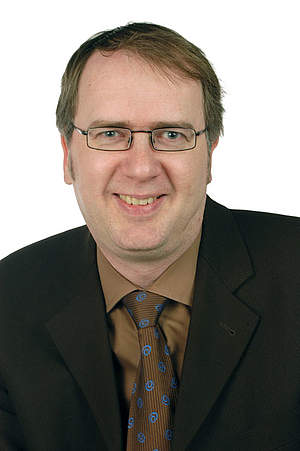
Stefan Evers, Germany
Chairperson:
SP: Headache: 2003-2005
The Headache Panel has been involved in several activities of the EFNS. We published guidelines on the treatment of migraine and of cluster headache which were integrated in the first European Handbook edited by the EFNS.
Further, the Headache Panel contributed courses, seminars, poster sessions, or lectures to nearly every EFNS congress. It was now agreed that the Headache Panel runs a headache teaching course every other year alternating with a teaching course run by the European Headache Federation. Several EFNS fellowships have been awarded in the field of headache which were reviewed by the Headache Panel.

Michel Billiard, France
Chairperson:
SP: Sleep disorders: 1999-2001
Sleep disorders are not a priority for a majority of neurologists. Insomnia is often viewed as a primary psychiatric condition. Hypersomnias are thought exceptional. Circadian rhythm sleep disorders, shift work type and jet lag type, are considered to be the exclusive domain of company doctors, and, last but not least, obstructive sleep apnea syndrome, the leading disorder in sleep medicine, is left to chest physicians in spite of the patients having normal lungs and tracheobronchial tree.
However sleep and wakefulness are products of the brain and numerous neurological diseases are associated with sleep disorders. 60% of stroke patients have obstructive sleep apneas. Synucleinopathies are remarkable for REM sleep behaviour disorder. Neurodegenerative and neuromuscular diseases have an impact on sleep and on respiration during sleep. Restless legs syndrome and periodic limb movement disorder during sleep affect a large number of individuals.
Thus the efforts of the EFNS scientist panel on sleep disorders were directed towards attracting the interest of our colleagues in neurological diseases associated with sleep disorders, by pushing for oral communications, organizing focused workshops and gathering task forces aimed at preparing guidelines. As a result, three EFNS guidelines were published in 2006 and 2007.

Paul Boon, Belgium
Chairperson:
SP: Epilepsy: 2003-2005
My engagement within the EFNS started with regular attendance of the annual EFNS meetings since the Seville Meeting in 1998. Fed by a strong involvement in daily clinical care for epileptic patients, I developed a personal interest and network in epileptology in Europe. The EFNS, through the scientist panel format, gave me the opportunity to serve the neurological community in the field of epileptology by organizing teaching courses, workshops and sessions during consecutive EFNS congresses and regional teaching courses. We have been able to introduce promising young MD's, mostly from Eastern European countries, in the world of epileptology. With the epilepsy scientist panel we have engaged in setting up guidelines for various conditions related to epilepsy and are currently trying to proceed on a wider basis with more participants from more countries. Watching the growing professional development in epilepsy of many colleagues within the increasingly successful EFNS has shown to be a hugely satisfying experience.
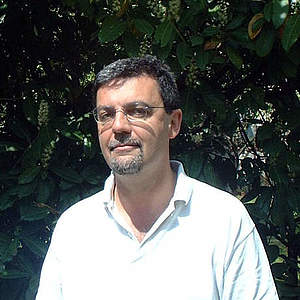
Stefano Cappa, Italy
Chairperson:
SP: Cognitive neurology: 2003-2005
Being Chairman of the EFNS scientist panel on Cortical Function from 1999-2003, and then as Chairman of the renamed Scientist Panel on Cognitive Neurology during 2003-2007 has been an extremely gratifying personal experience. The opportunity to meet new colleagues, who share the same research and clinical interest, but may come from extremely diverse cultural backgrounds, is one of the great European advantages. This aspect was probably particularly evident in the domain of cognitive dysfunctions, in which the approaches in different European countries are heterogeneous. One major effort of the panel was the preparation and update of the Guidelines on Cognitive Rehabilitation, which have circulated widely, also outside Europe, and may prove to be influential, in particular if the Panel will guarantee their update in the future.
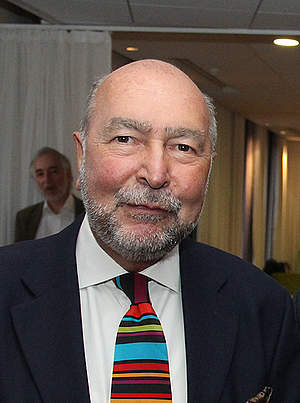
Antonio Federico, Italy
Chairperson:
SP: Child and developmental neurology: 2001-2003
My memory of that period:
It was an exiting period in which a tentative to link East and West European Neurology was made and to improve the general quality of neurology research and care.
The congresses were a unique opportunity to meet people, know their activities and to establish possibilities of exchanges. The same was during the meetings and the contact within the different Panels and Working Groups.
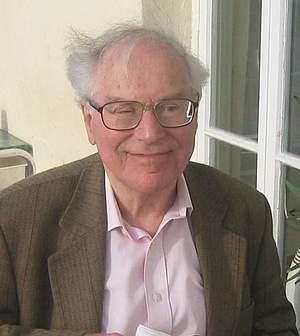
Frank Clifford Rose, United Kingdom
Chairperson:
SP: History: 1999-2003
I regarded my main function at the EFNS was to get recognition for the EFNS Research Group on the History of Neurosciences and served as its Chairman for three years, being succeeded by Dr Christopher Gardner-Thorpe. He began an annual "Clifford Rose" Lecture to be given each year at the EFNS Congress. He gave the first lecture, to be followed in Finland by Dr Matilla and by Chris Goetz in Paris. The new Chairman of the EFNS Research Group on the History of Neurosciences is Dr John Galvin of Cork, Ireland.
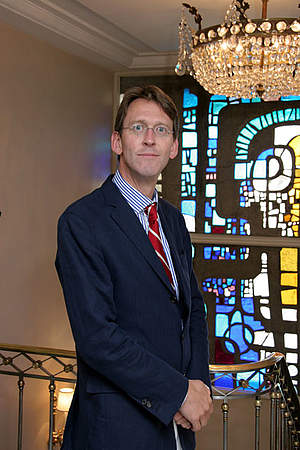
Philip Scheltens, Netherlands
Chairperson:
SP: Dementia: 2007-2009
I am chair of the scientific panel on dementia since 2006, following the footsteps of Gunhild Waldemar. My goal is to further scientific collaboration within the European countries especially those that were not that involved before. Previously I was the Dutch representative of the panel and as such member of the committee of revising the EFNS guidelines for diagnosis and management of dementia.
All Scientist Panels
| SCIENTIST PANELS | CHAIRPERSONS |
| Alcoholic effects on central peripheral nervous system | Gunnar Bovim (Norway), Matti Hillbom (Finland) |
| ALS and non-dementing degenerative disorders | Nigel Peter Leigh (UK), Albert C. Ludolph (Germany), Vincenzo Silani (Italy), Lars-Olof Ronnevi (Sweden), Michael Swash (UK) |
| Autonomic nervous system disorders | Pietro Cortelli (Italy), Max J. Hilz (Germany), Christopher Mathias (UK), David B. Vodusek (Slovenia) |
| Brain recovery and rehabilitation | Heinrich Binder (Austria) |
| Cerebrospinal Fluid CSF | Florian Deisenhammer (Austria) |
| Child neurology | Folker Hanefeld (Germany), Richard Robinson (UK), Ola H. Skjeldal (Norway), Antonio Federico (Italy) |
| Cognitive neurology | Stefano Cappa (Italy), Oguz Tanridag (Turkey) |
| Cortical function (neuropsychology) | Alexandre Castro Caldas (Portugal) |
| Cortical function & speech and Language disorders | Stefano Cappa (Italy) |
| Critical Care | Cesare Fieschi (Italy), Lutz Harms (Germany), Hubert Kwiecinski (Poland), Erich Schmutzhard (Austria) |
| Dementia | Paavo Riekkinen (Finland), Philip Scheltens (Netherlands), Gunhild Waldemar (Denmark), Philip Scheltens (Netherlands) |
| Demyelinationg diseases | Ralf Gold (Germany), Ludwig Kappos (Switzerland), Olivier Lyon-Caen (France), Martin Rossor (UK), Per Soelberg Sorensen (Denmark), Mieczyslaw Wender (Poland) |
| Developmental & Child Neurology | Antonio Federico (Italy) |
| EFNS/MDS-ES panel on movement disorders | Alfredo Berardelli (Italy),Wolfgang Oertel (Germany) |
| Environmental Neurology | E. Joost Jonkman (Netherlands), Edgar Lukas (Czech Republic) |
| Epilepsy | Paul Boon (Belgium), Christian Elger (Germany), Antonio Gil-Nagel (Spain), Hermann Stefan (Germany) |
| Genetics and metabolic disorders | Jean-Marc Burgunder (Switzerland) |
| Headache | Stefan Evers (Germany), Rigmor Hojland Jensen (Denmark), Giuseppe Nappi (Italy), Julio Pascual (Spain), Jean Schoenen (Belgium) |
| History of Neurology | Frank Clifford Rose (UK), Roderick J. Galvin (Ireland), Christopher Gardner-Thorpe (UK) |
| Infections including Aids | Klaus Felgenhauer (Germany), Peter G.E. Kennedy (UK), Hans-Walter Pfister (Germany), Israel Steiner (Israel) |
| Metabolic disorders including inherited metabolic disorders | Corrado Angelini (Italy), Antonio Federico (Italy), |
| Muscle disorders including myasthenia gravis | Irena Hausmanowa-Petrusewicz (Poland), David Hilton-Jones (UK), Heinz Reichmann (Germany), Guglielmo Scarlato (Italy) |
| Neuroendocrinology | Per-Olov Lundberg (Sweden) |
| Neuroepidemiology and public health | Valery Feigin (New Zealand), Maura Pugliatti (Italy), Jaakko Tuomilehto (Finland) |
| Neurogenetics | Hanne Flinstad Harbo (Norway), Nicholas W. Wood (UK) |
| Neurogenetics including molecular genetics | Thomas Gasser (Germany), Leena Peltonen (Finland), Nicholas W. Wood (UK) |
| Neuroimaging | Jean-Claude Baron (UK), Gian Luigi Lenzi (Italy) |
| Neuroimaging & Neurosonology | Massimo Filippi (Italy), Jose Masdeu (Spain) |
| Neuroimmunology | Nils Erik Gilhus (Norway), Roland Liblau (France), Klaus Toyka (Germany), Jan J. G. M. Verschuuren (Netherlands) |
| Neurooncology | Wolfgang Grisold (Austria), Jan J. Heimans (Netherlands), Riccardo Soffietti (Italy) |
| Neuroophthalmology | Christopher Kennard (UK), Detlef Kömpf (Germany), Dominik Straumann (Switzerland) |
| Neuroophthalmology/Neuroothology | Dominik Straumann (Switzerland) |
| Neurootology | Thomas Brandt (Germany), Adolfo Bronstein (UK), Marianne Dieterich (Germany) |
| Neuropathic pain | Giorgio Cruccu (Italy), Teofan M. Domzal (Poland), Claudia Sommer (Germany), Troels Staehelin Jensen (Denmark) |
| Neuropathies | Eduardo Gutierrez Rivas (Spain), Isabel Illa (Spain), Johannes Jakobsen (Denmark), Jean-Marc Leger (France), Jean-Michel Vallat (France), Peter van den Bergh (Belgium) |
| Neuropathology | Hans Lassmann (Austria), Miroslaw Mossakowski (Poland) |
| Neuropharmacology | Carl H. Lücking (Germany), Cristina Sampaio (Portugal) |
| Neurophysiology | Christian Walter Hess (Switzerland), Maria Teresa Paiva (Portugal) |
| Neurorehabilitaion | Michael P. Barnes (UK), Volker Hömberg (Germany), Jörg Kesselring (Switzerland), Alan J. Thompson (UK) |
| Neurosonology | E. Bernd Ringelstein (Germany), David Russell (Norway) |
| Neurotoxicology, Environmental & Occupational Neurology | Pavel Urban (Czech Republic) |
| Neurotraumatology | Franz Gerstenbrand (Austria), Pieter E. Vos (Netherlands), Klaus von Wild (Germany) |
| Palliative care and Neurology | Raymond Voltz (Germany) |
| Parkinson's disease and other movement disorders | Martin Horstink (Netherlands), Andrew Lees (UK), Niall P. Quinn (UK) |
| Sleep disorders | Michel Billiard (France), August Declerck (Belgium), Poul Jorgen Jennum (Denmark) |
| Speech and language disorderes | Serge Bakchine (France) |
| Spinal cord disorders | Heinrich Binder (Austria), Zdenek Kadanka (Czech Republic), Johannes Noth (Germany) |
| Spinal fluid and hydrocephalus | Jan Ekstedt (Sweden) |
| Stroke | Michael Brainin (Austria), Anna Czlonkowska (Poland), Markku Kaste (Finland), Bo Norrving (Sweden) |
| Substance abuse and neurotoxicology | Maurizio Leone (Italy) |